8. Shame (Steve McQueen, 2011)
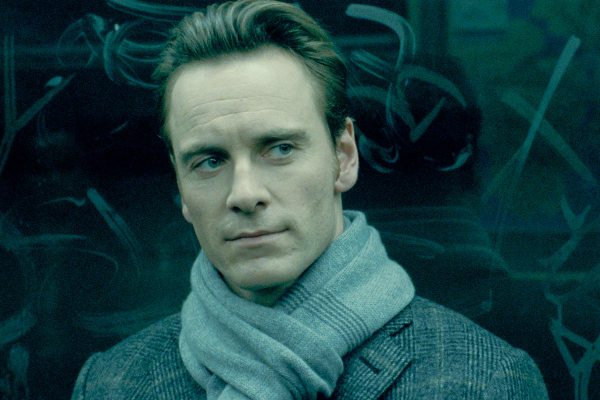
Sex brings up conflictive and contradictory feelings; for instance, pleasure and guilt often come together as parts of an indivisible whole. Since Freud started studying hysteria and neurosis, it has become very clear that the huge gap between our sexual desires and that which is socially accepted is the key to understanding most of our psychological disorders.
Brandon, played by Michael Fassbender, is a sex addict whose only concern is sexual satisfaction. His life is constructed in a way that his sexual affairs are anonymous and always far from becoming sentimental relationships.
When his sister arrives to stay with him indefinitely, his whole order falls into chaos and the dysfunctions of his life start manifesting. Emptiness, fear and denial come to the light as the root of his sexual obsession. There is no doubt that sex has a serious impact in every aspect of our lives, and that’s what we see in Steve McQueen’s masterpiece.
7. Blue Velvet (David Lynch, 1986)
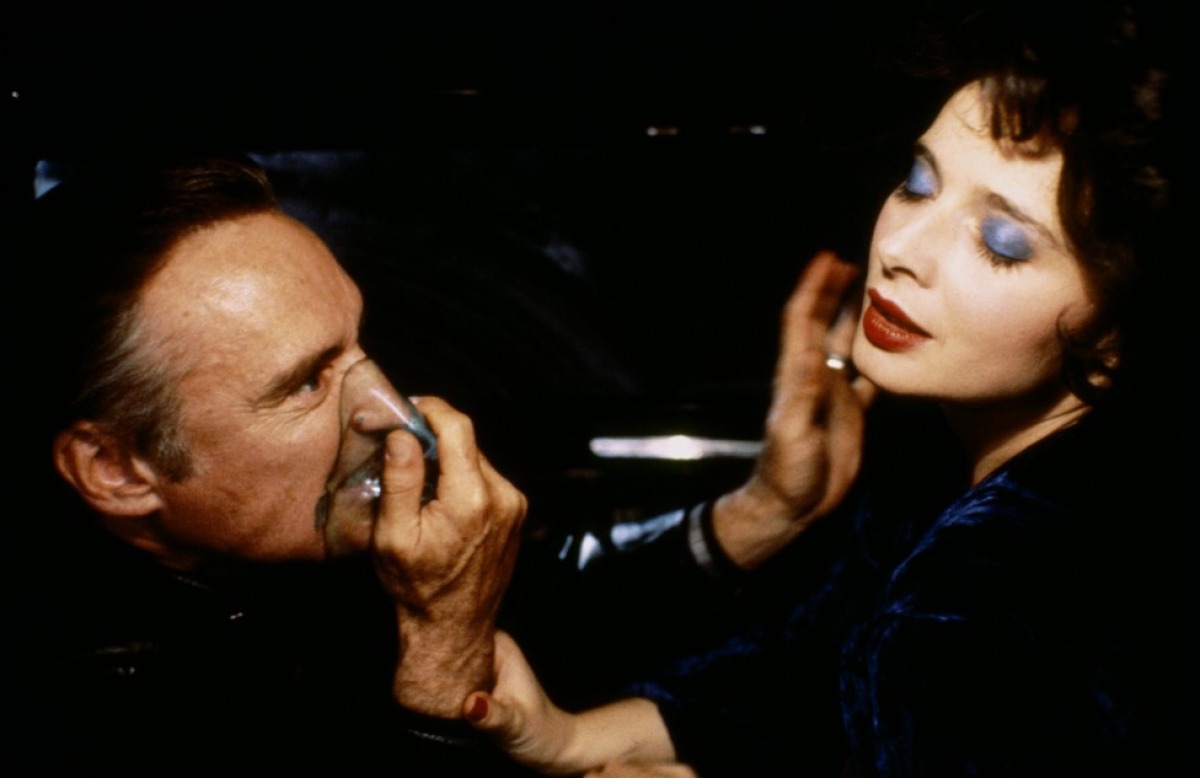
“Blue Velvet” is the fourth feature film by David Lynch, and even though it’s probably the easiest one to watch of his entire filmography, it is still very haunting and perturbing; it feels like spying on someone else’s dreams. The film is a descent into suffering, fear and trauma that begins with a cut ear found by Jeffrey Beaumont (played by Kyle MacLachlan) in his hometown and ends with a dream about love.
Voyeurism is something present in every cinephile because we like peeking into the lives of others, of finding out what happens behind closed doors. It is also one of the prime motors of the film, as Jeffrey assumes the role of a detective, trying to know more about the story of the ear he found. He sneaks into the apartment of Dorothy Vallens, played by Isabella Rossellini, a nightclub singer whose husband and son have been kidnapped by a deranged, sexually deviated Dennis Hopper.
The character of Dorothy is interesting for it is eminently erotic, with a sensitivity that goes beyond the approved moral. In “Blue Velvet” we see curiosity as one of the motors that move us, and the magnetic force imposed by other people’s sexual lives as an irresistible temptation.
6. Irréversible (Gaspar Noé, 2002)
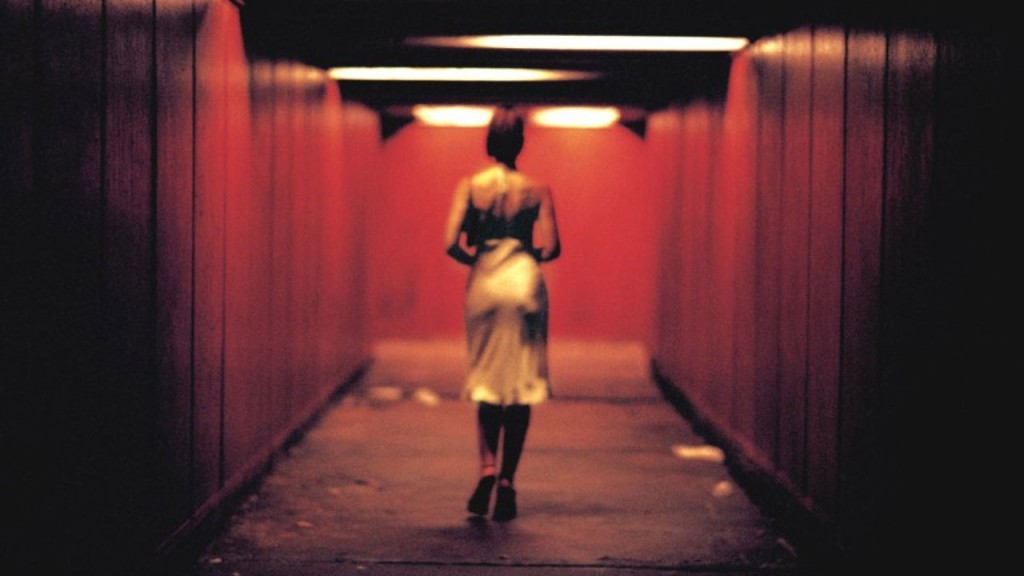
“Irréversible” is the film that gave Garpar Noé the notoriety he possesses today in the film industry. Both extremely violent and movingly tender, it is a strange film. It is hard to watch it and remain indifferent.
One of the most outstanding traits of the film is the way it portrays two completely different sides of sexuality. Starting with the cruel, nausea-inducing violence of rape and murder, the film traces back the story to find playful love, the tender laughs of two young lovers.
Among the many metaphysical subtleties of the film, we find the clash of the opposites. The first half of the movie is obscure and raw, it is a descent into hell where we are face to face with the lowest of human emotions and impulses.
It synthesizes feelings like despair, hate, suffering, it portrays our brutal face, and in such context things like sex can only be presented as a low, underground activity with Monica Bellucci’s rape kick starting a spiral of revenge and pain.
On the other hand, the second half of the film feels light and ethereal; the last scenes of the film are bright and playful, the camera moves softly and everything is lit with a yellow light, the color of the sun, of life. Sex here is a statement of love, of tenderness, and ideas like malice and fear are unthinkable.
5. That Obscure Object of Desire (Luis Buñuel, 1977)
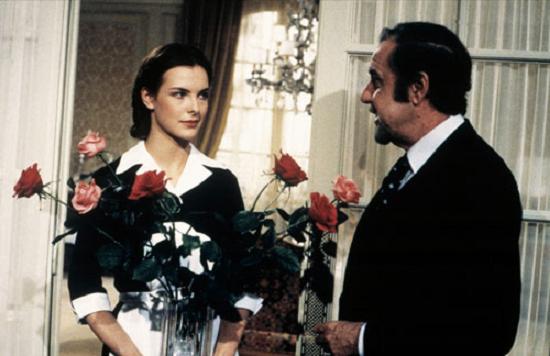
Luis Buñuel is one of the greatest filmmakers of the past century, being innovative and groundbreaking since his first short film, “The Andalusian Dog”, which he made with Salvador Dalí and is now considered one of the most important pieces of experimental and surrealist cinema.
While he lived in México he directed a few films, which are now regarded as classic Mexican films, like “Nazarín”, “El Ángel Exterminador” and “Los Olvidados”. His last film, “Cet obscur objet du désir”, was shot in France and it narrates in the form of flashbacks the obsession of Mathieu with Conchita, a young woman who won’t allow him to satisfy his desires with her.
Mathieu is a man tied by the obsession Conchita provokes on him. She knows he wants her so she uses that to her benefit. In a sense, it could be considered a left-wing film in its ideology, for it inverts the class dynamics by putting Conchita, a lower-class woman, in a position of power over Mathieu, a bourgeois who is used to being obeyed.
Oppression and abuse are then imposed by Conchita, making Mathieu satisfy her whims and paying him with the hope that eventually she would sleep with him.
4. Last Tango in Paris (Bernardo Bertolucci, 1972)
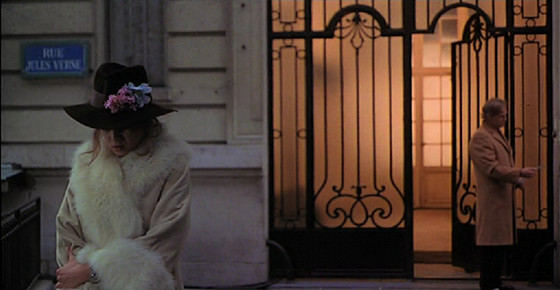
Probably Bertolucci’s most famed film, “Last Tango in Paris” is beautiful, nostalgic in its depiction of Paris, profoundly in touch with human emotions, and very controversial for its infamous rape scene. The film feels like a muffled scream brought to us by a gust of wind, and it is autumnal and elusive. Marlon Brando plays a man in mourning named Paul, and Maria Schneider is Jeanne, a young Parisian looking for an apartment.
The film is about that which is hidden; they don’t share their name with each other, yet they begin a passionate sexual affair. Paul and Jeanne are castaways, looking for a safe haven from the turmoil of their lives. They both are feeling what Sartre called the “nausea”, the existential crisis everybody experiences at least once when our heroes fall apart and our expectations are shattered.
The animal, merely physical sex they engage into deconstructs the idea of idealized love, of the happy marriage we all think ourselves destined to, so the institution of family is strongly questioned as a fake construction, a product of advertisement. If anything, this film makes us reflect on what we expect out of love.
3. Eyes Wide Shut (Stanley Kubrick, 1999)
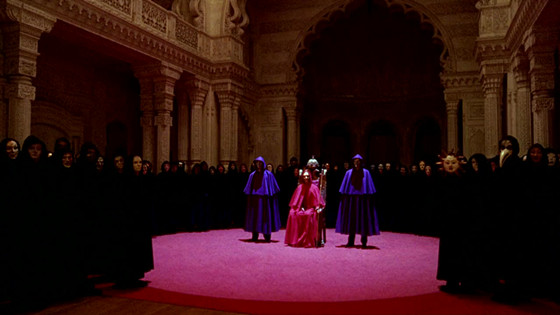
You are having a dark, twisted dream, everything seems confusing and unreal but it is fascinating and you are intrigued, then you wake up disoriented, with nothing but faded memories and the haunted feeling that you are still dreaming. That’s what watching “Eyes Wide Shut” feels like; it is a bizarre, nightmarish construction where certainty is nonexistent and the deepest desires emerge unveiled.
The final film by Stanley Kubrick, which is also his strangest and most complex psychologically, it follows Dr. William Harford, played by Tom Cruise, as he manages to sneak into a strange sexual ritual performed by powerful politicians and businessmen.
The key element is the emergence of our deep sexual desires, of our repressed impulses. Sex is presented as a force that goes beyond our individual egos.
In the secret ritual orgies that take place in the film, everybody is wearing a mask; it portrays magnificently what happens when we cover our “social masks”, our faces, putting aside all of the constraints and limitations that culture and civilization force on us. Deeply psychological, it is a great film to reflect about the idea we have about ourselves and to observe our desires as manifested in dreams.
2. In the Realm of the Senses (Nagisa Ôshima, 1976)
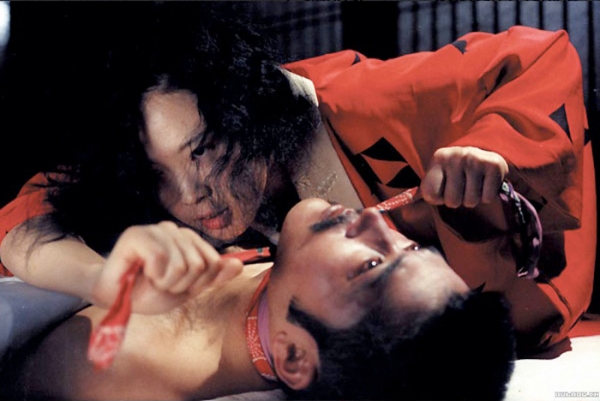
“In the Realm of the Senses” is one of Nagisa Ôshima’s most controversial films, even putting him in front of a court of law under charges of obscenity.
It narrates without any kind of modesty the insanely passionate love story between Sada Abe and Kichizo Ishida, her master, and their borderline insane obsession with each other. Lust, desire and love are taken to their most extreme consequences, morality fades away as a social construct, and pleasure becomes the only thing that exists.
They cannot stand the idea of being separated, and both Kichizo and Sada are completely absorbed by obsession. The world ceases to exist as they indulge in their sexual extravaganzas, breaking all kind of boundaries, always looking for new ways to satisfy themselves, even if that means losing that which makes them who they are, Eros and Thanatos together in this film as the snake eating its own tail.
1. Saló (Pier Paolo Pasolini, 1975)
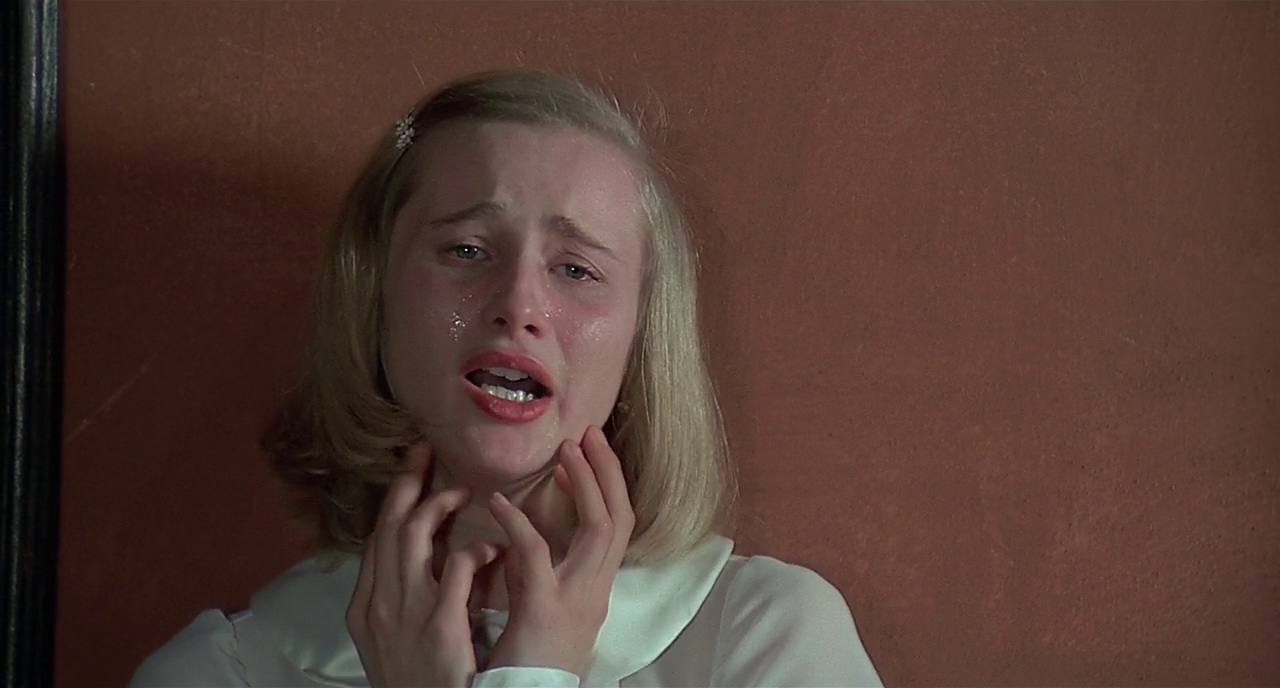
Pasolini is controversial, cruel, raw, and acutely critical. His films are difficult to watch, taking the art to radical levels. Often spiritual and even metaphysical, the world of images he constructs is challenging, both intellectually and morally. With “Saló”, he took the equally controversial Marquis de Sade to criticize the military regime and the fascism that tragically swept through Europe from the beginnings of the 20th century, and whose scars can still be felt to this day.
The film is an adaptation of the book “The 120 Days of Sodom” that narrates how four powerful political and spiritual leaders lock themselves in a mansion to perform all kinds of physical and emotional torture on a bunch of disgraced adolescents kidnapped by them. All kinds of sexual abuses and humiliations take place and our capacity to feel physical pain in exploited thoroughly. It is a soul-crushing, hopeless film.
Author Bio: Emilio Martínez Frausto is an Architecture student lost in Mexico City. Two of his greatest passions are literature and cinema. He is currently trying to find a way to cope with existance and to decide what he wants to do with his life. He writes poetry, short stories and film scripts.